
14 functional microbial markers
Uncover the microbiome impacts on overall health through microbial diversity, consumption and production.

Gastrointestinal disorders

Bloating

Irritable bowel syndrome (IBS)

Abdominal pain

Intestinal permeability

Chronic inflammation

Inflammatory bowel disease (IBD)

Hormonal imbalance

Digestive complaints

Metabolic and weight concerns

Constipation

Immune system health concerns

Diarrhoea
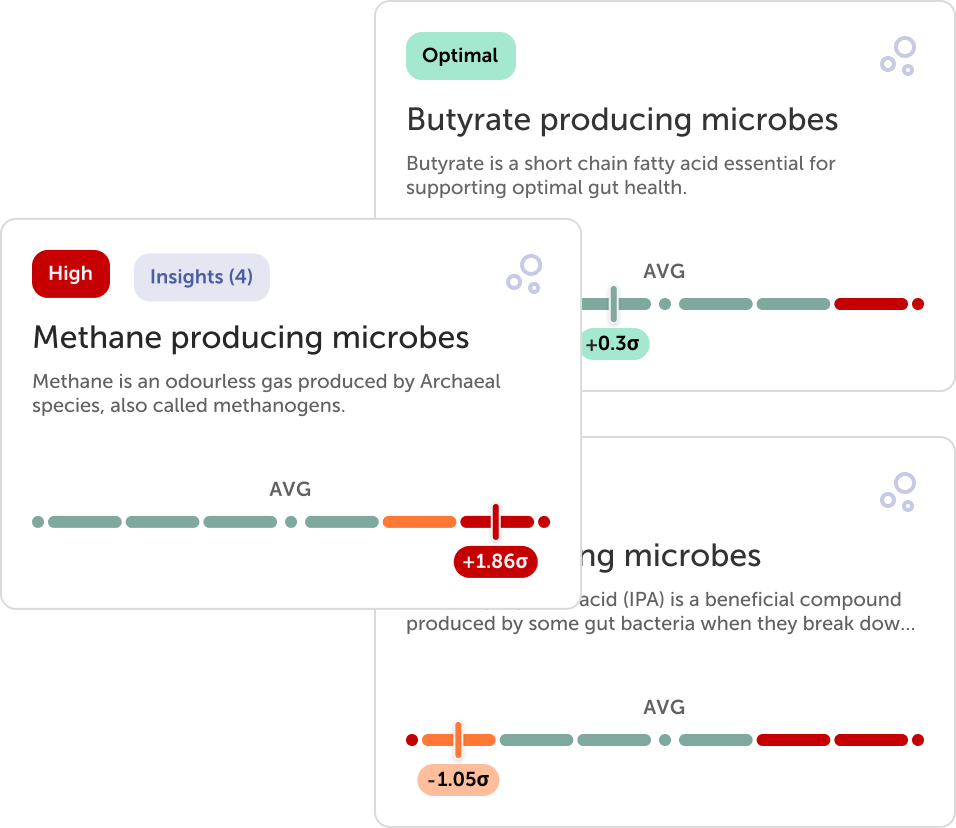
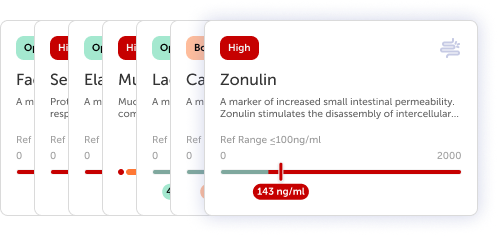



Uncover the microbiome impacts on overall health through microbial diversity, consumption and production.


Get an assessment of gut function and environment from six diagnostic markers, plus faecal pH as an investigational marker.


See the microbial species and their function with shotgun metagenomic sequencing that can detect and analyse over 28,000+ microbial species*.
Diagnostic clinical¹ and research² insights
Scientifically graded statements on the evidence for diet and lifestyle interventions as well as probiotic, prebiotic, nutrient and polyphenol supplementation
Diagnostic gastrointestinal markers
Faecal calprotectin, faecal occult blood, lactoferrin, pancreatic elastase, secretory IgA, zonulin¹
Expert Summary
Comprehensive gut microbiome and gastrointestinal insights to improve patient health, summarised at the top of your MetaXplore report. Leverage a clear, informative summary based on Microba’s cutting-edge science that can save you time interpreting reports
Investigative gastrointestinal marker
Faecal pH²
Microbiome community insights
Metagenomic identification of 28,000+ microbial species* including including bacteria, archaea and eukaryotes (yeasts and protists)^
Microbiome diversity, microbial richness count and relative abundance of the microbial community²
Report Sharing
Effortlessly share secure, professional reports with patients and specialists, enabling easy and complete access to in-depth microbiome insights
Presence and relative abundance of bacterial species within the following genera
Agathobacter, Akkermansia, Bifidobacterium, Bilophila, Citrobacter, Desulfovibrio, Eggerthella, Enterobacter, Escherichia, Faecalibacterium, Klebsiella, Lactobacillus, Oxalobacter, Porphyromonas, Prevotella, Rosburia, Ruminococcus, Streptococcus and more²
Production of microbial metabolites
Butyrate, acetate, propionate, 3-indolepropionic acid (IPA), hexa-acylated lipopolysaccharide (hexa-LPS), trimethylamine (TMA), hydrogen sulphide, branched-chain amino acids (BCAA), B.fragilis toxin, methane, beta-glucuronidase²
Emerging markers
Histamine, ammonia (urease), gamma-aminobutyric acid (GABA) production, GABA consumption, vitamin K, lactate, human DNA²
Microbiome consumption of
Mucin and oxalate²
Whole microbiome profiling of all fungi species
Candida genus and Saccharomyces genus²
Whole microbiome profiling of parasites
Parasite detection of Blastocystis subtypes 1-9 and other protist parasites²
Gut microbiome impact on
Intestinal inflammation, intestinal barrier, detox/retox, systemic inflammation, motility and digestive secretions²
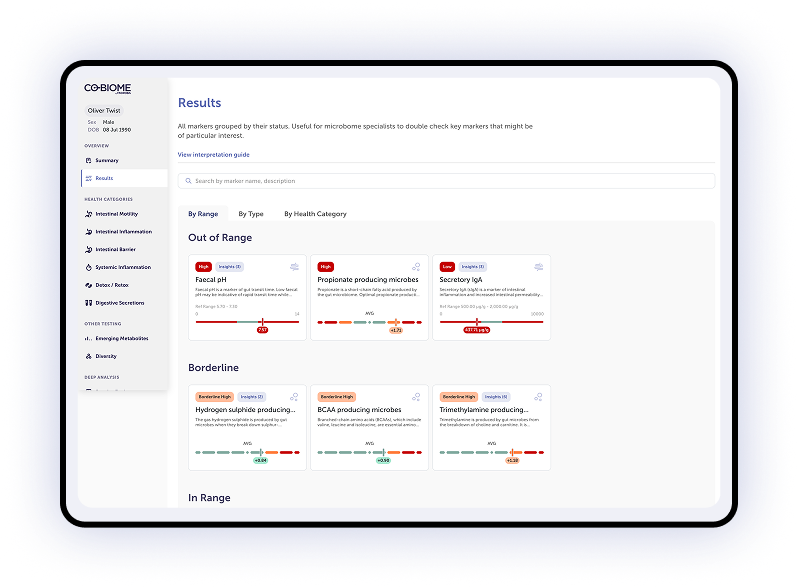
Functional gut insights
Move beyond species detection.
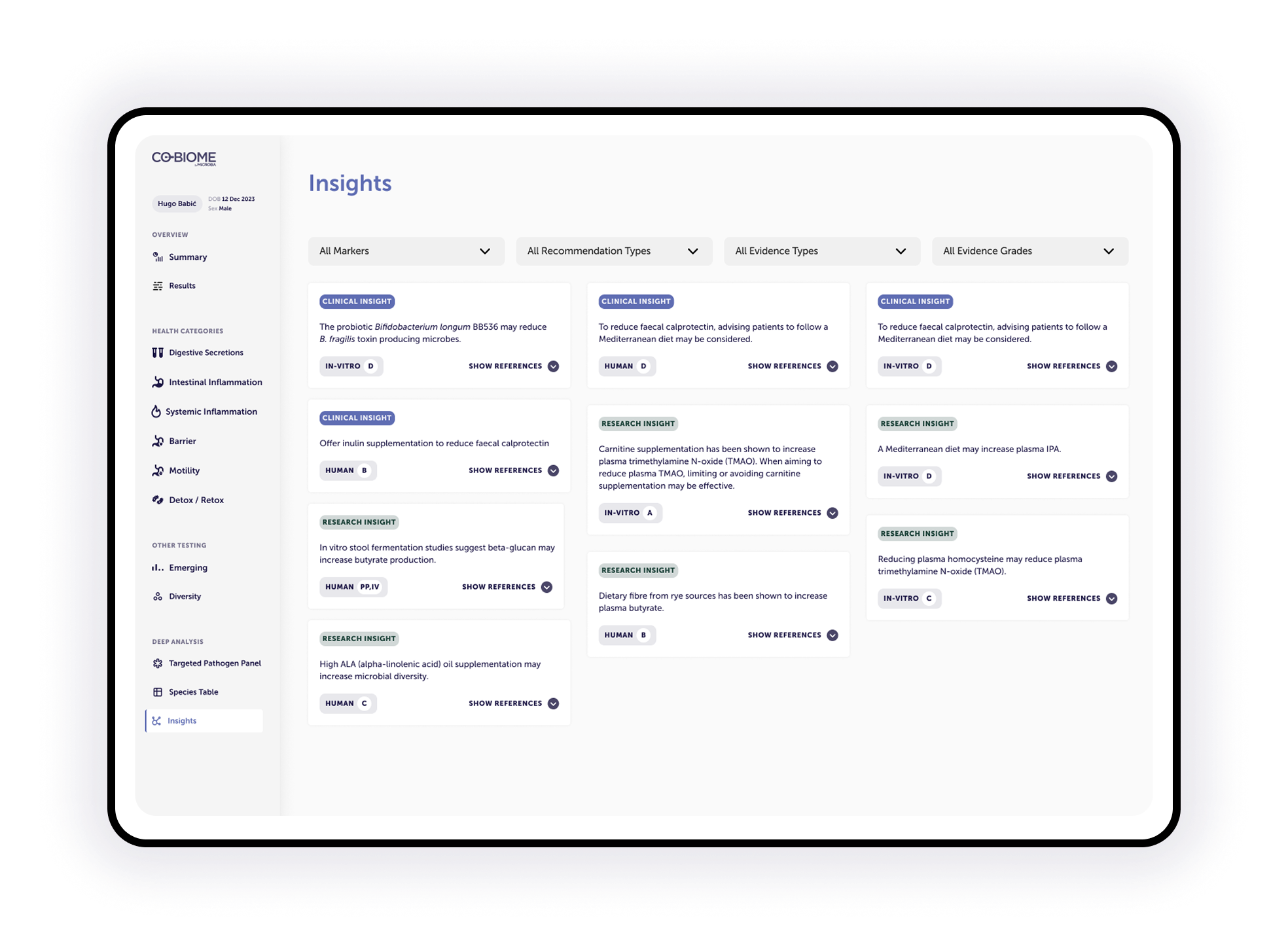
Evidence-backed Next Steps
Design management plans with confidence.
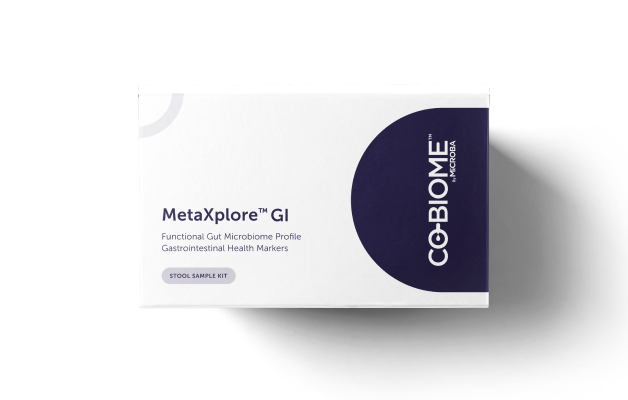
Two Test Panels, One Report
No more test stacking.

Clinical Support Beyond the Report
You’re never on your own.
 1. Practitioner referral
1. Practitioner referral
Register with your clinical registration details so you can refer a test to your patient via our practitioner portal.
 2. Patient Purchase & Collection
2. Patient Purchase & Collection
The patient purchases the test via the payment link and receives the test kit to their address. After collecting the sample, the patient ships it to our lab with a prepaid package.
 3. Results & Report Delivery
3. Results & Report Delivery
Test results will be available as an interactive report in the practitioner portal within 14 days of sample receipt. You can share a patient-friendly version of the report via email.
 4. Book Interpretation Support
4. Book Interpretation Support
Book a time with a Clinical Application Specialist for guidance if you require clinical support for a complex case, or you’re new to whole microbiome testing.
The microbial markers assess the number of microbial cells within the microbiome that have the functional potential to either produce microbial metabolites or consume compounds. In addition, microbial richness and diversity are considered microbial markers as well.
Diagnostic gastrointestinal health markers include calprotectin, faecal occult blood, lactoferrin, pancreatic elastase, secretory IgA and zonulin.
Faecal pH is provided as a result in the gastrointestinal health markers as an investigative gastrointestinal marker that may be indicative of gut transit time. The faeces pH assay used in the MetaXplore™ range is for research use only and not to be used as a basis for diagnosis.
The health categories represent different aspects of gut function and health, as well as mechanisms by which the microbiome influences systemic health. These include intestinal motility, intestinal inflammation, intestinal barrier, systemic inflammation, digestive secretions and detox/retox.
Absolutely. You can view the sample report anytime. To begin using MetaXplore, simply register as a practitioner. There’s no upfront commitment—just access to better tools for better care.
Metagenomics (also known as shotgun metagenomics) is the most comprehensive DNA sequencing method that: